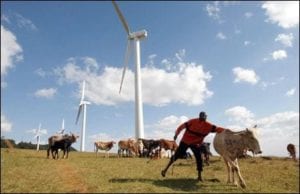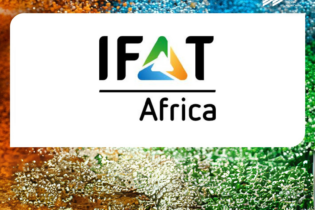A lack of sufficient, reliable electricity generating capacity has been plaguing South Africa’s economy, while heavy reliance on coal to generate electricity brings all the financially unaccounted for environmental and health costs and risks associated with coal-fired power plants.
As a developing country, South Africa is one of the biggest emitters of carbon dioxide and greenhouse gases (GHGs) in both absolute and per-capita terms. At the same time, high unemployment rates continue to be a chronic social and economic problem. South Africa is richly endowed when it comes to potential renewable energy resources. Government has come around to the view that encouraging and actively supporting a shift from fossil fuels to renewable energy resources can go a long way toward meeting its social, economic and environmental challenges. Encouragingly, that’s a viewpoint that developing economies around the world are coming round to, particularly as emerging market economies are the primary drivers underlying actual and forecast growing global fossil fuel demand. Government’s Integrated Energy and Integrated Resource Plans lay out the overarching strategy for South Africa to start a transition to clean, renewable energy and address critical social, economic and environmental problems. The Renewable Energy IPP Programe is central to reaching SA’s renewable energy and IRP goals. The government has set targets of producing 10 000 GW-hours of electricity from renewable energy sources by 2013, and installing 17.8 GW of renewable power capacity by 2030, less than 10% of its forecast total. In addition to avoiding the carbon dioxide and GHG emissions, land, water pollution and environmental degradation associated with using fossil fuels to generate electricity, Renewable Energy IPP Programme bids must meet mandatory local content provisions, which the government has included to motivate project developers to build renewable energy manufacturing facilities in the country.This, along with development and growth of downstream renewable energy businesses, such as installation and service providers, as well as ancillary service providers, is expected to provide a significant boost to job creation.
Valued at more than R28 billion, the 19 renewable energy project developments awarded on 21 May are projected to result in the creation of nearly 7 400 jobs. Nearly R11.8 billion of the total R28.06 billion in renewable energy project value is to be of local content. Some 1 165.9 MW of Renewable Energy IPP Programme’s planned large-scale renewable energy project capacity remains unallocated. Breaking this out, 798.9 MW of a total 1 850 MW of onshore wind capacity, 256 MW of a total 1 450 MW of solar PV, and 60.7 MW out of a total 75 MW allocated for small hydro projects have yet to be awarded. Source:cleantechnica.com







